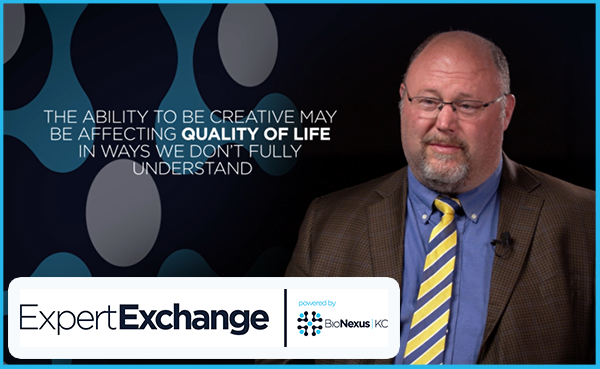
Pharmaceutical medicine is like a string of well-developed islands. Each treatment or drug is created with incredible effort, time, and money and then sits within its shore and does what it was designed to do. For David Beversdorf, MD, Professor of Radiology, Neurology, and Psychological Sciences, and William and Nancy Thompson Endowed Chair at the University of Missouri (MU), strength is building bridges from different treatments and drugs to improve other applications and conditions.
It’s fair to say that Beversdorf found this power early in his process and has been exploring new islands to connect. He started training at Indiana University, followed by his residency at Dartmouth and a Cognitive Neurology Fellowship at the University of Florida. While in medical school, he patiently listened to the first-year lectures but instantly connected when the neuroscience topic started. “I sat up and thought, this is really cool! This connects to this; this connects to this. It was so far past merely memorizing this molecule, memorizing this term. Everything is connected, which immediately made sense to me and seemed to be how I worked, too,” Beversdorf said.
He began with understanding and researching how stress can affect brain function. His research developed a connection between dopamine, used to treat Parkinson’s disease and its impact on creative problem-solving. This observation led Beversdorf to research Propranolol, a drug already approved for human use, and its effect on stress and cognition. This bridged into another interest, autism spectrum disorder. “At first, I began to think about what’s going on neuro-psychologically here, but that quickly gave way to, what can we do about it?” Beversdorf said.
A large clinical trial followed to research Propranolol and its effect on anxiety and autism spectrum disorder. This connection and repurposing of a drug already in use for other diseases could quickly improve the quality of life for patients. “That’s the unique thing that I am finding, a bridge between many things, pharmacology, brain imaging, and cognition and outcomes in neurodevelopment. Kind of an unusual combination, but it allows me to go beyond the psychiatric manifestations,” Beversdorf said.
Beversdorf isn’t opposed to novel treatments but believes there is a massive time advantage to repurposing drugs. “When developing a new drug, you test it in early development. Then it goes through animal models, phase testing, early human clinical trials, safety testing, and tolerability testing. This could take decades; only then stands a chance of getting approved. Drug repurposing starts when a doctor sees a pattern where a drug seems to work in an unintended way for a different issue, and then somebody takes it to a study and proves it. Then you are using it to make an impact in nearly real-time,” Beversdorf said.
One of the biggest hopes for Beversdorf and his research is to improve the quality of life for adults on the spectrum. This impact is practical for both patients and families. When individuals are diagnosed in their school-aged years, they have a wide-ranging support network available, but when they age out, the services are no longer available, leaving the care to aging parents and extended family. “We call this the cliff of services. When an individual on the autism spectrum is in school, they have access to all of the interventions in the school system, speech therapy, occupational therapy, and all these other services. It’s good access and high intensity, then they graduate, and it’s done,” Beversdorf said. This provides an opportunity for better-applied therapeutics and treatments to improve communication, stress management, and quality of life for patients and caregivers.
Connecting different drug treatments, research opportunities, and repurposing drugs to other conditions can have an immediate and powerful impact on the quality of life for patients today. Like islands on the horizon, someone like Beversdorf must understand the need and opportunity and build a bridge to connect it all.
More from our Expert Exchange program